Find Help
More Items From Ergsy search
-
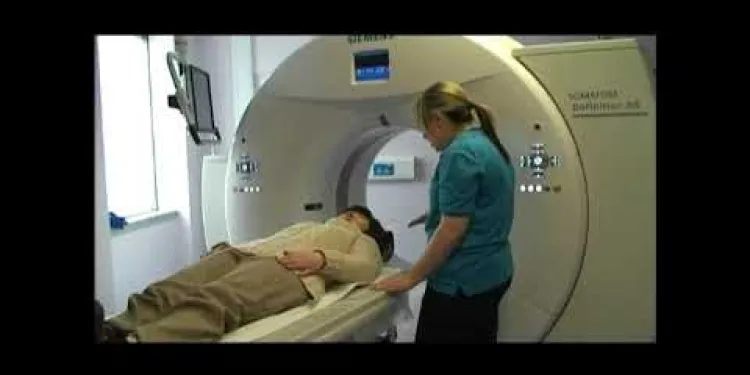
Going For a CT Scan
Relevance: 100%
-
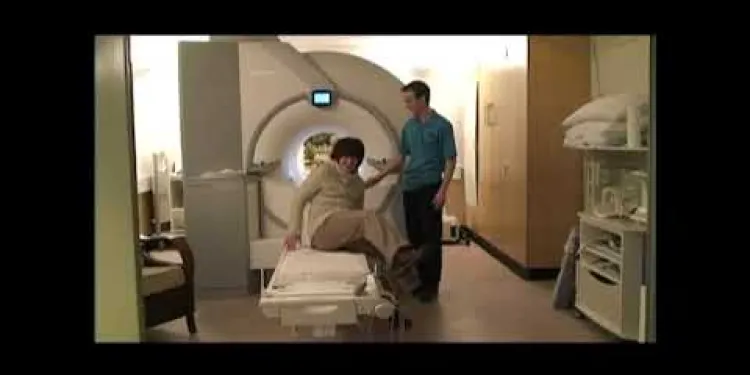
Going for an MRI Scan
Relevance: 95%
-
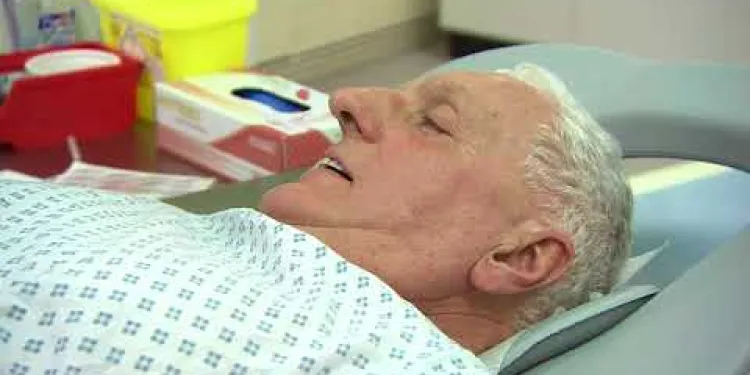
So, you're having a CT scan...
Relevance: 95%
-
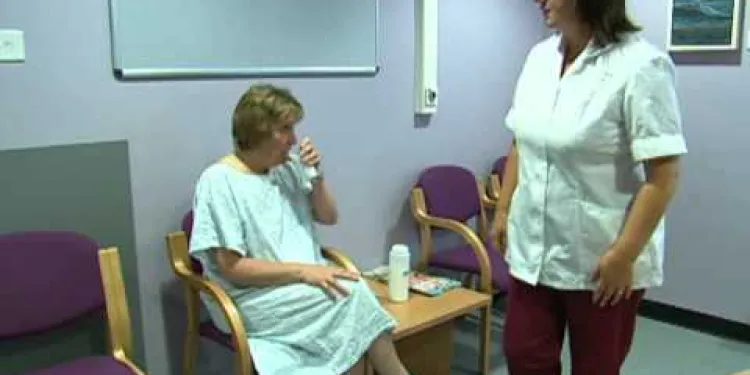
Having a CT Scan in Tayside
Relevance: 95%
-
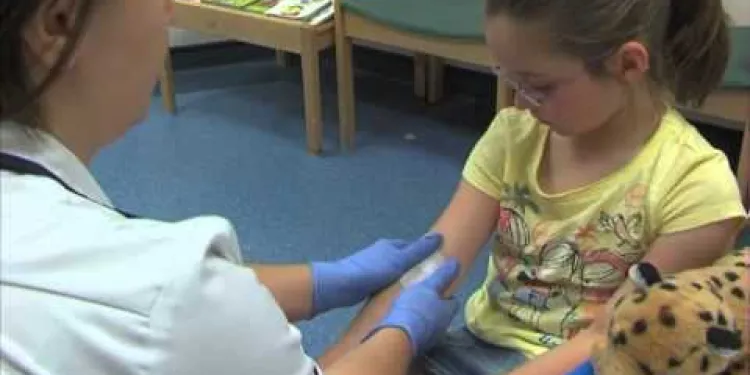
I'm having an MRI scan
Relevance: 95%
-
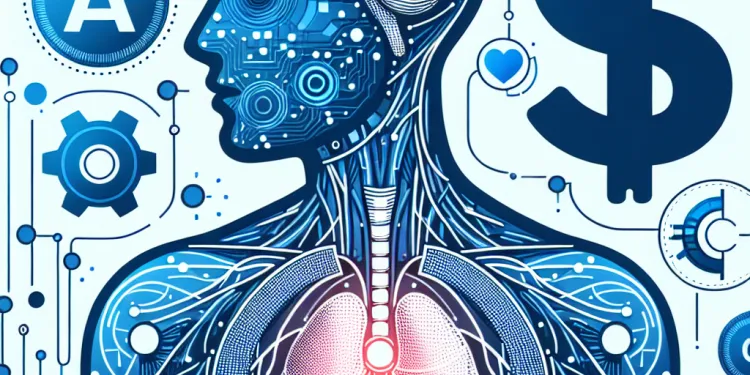
Are AI body scans reliable?
Relevance: 95%
-
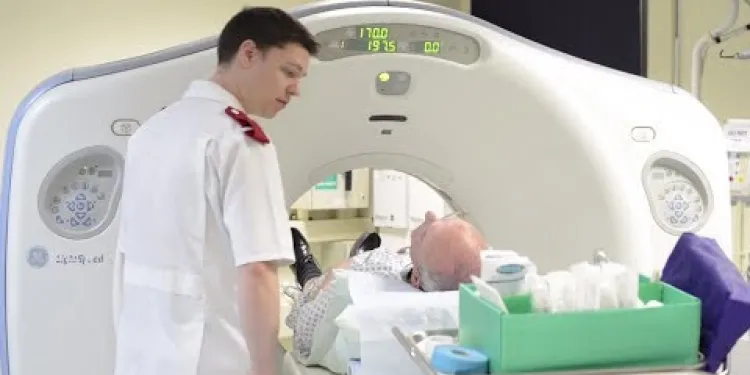
Having a CT scan in Hospital - What's it like having a CT scan at Bedford Hospital?
Relevance: 93%
-
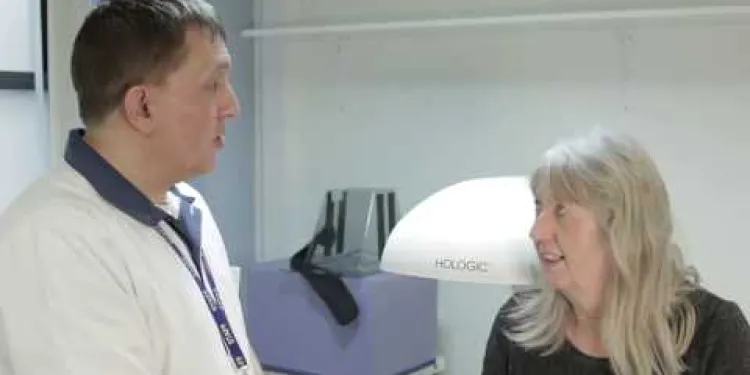
What to expect of a DXA Scan
Relevance: 91%
-
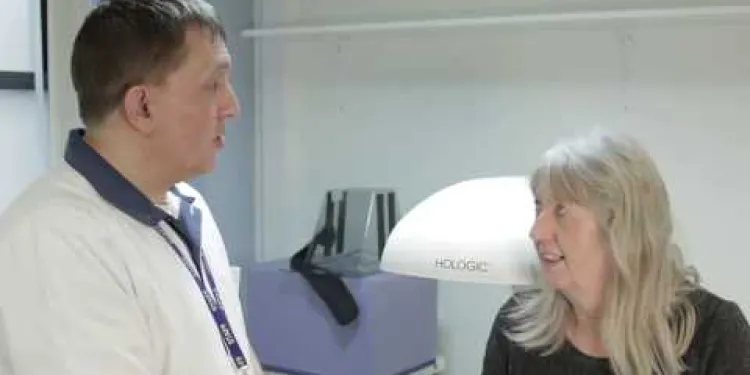
What to expect of a DXA Scan
Relevance: 91%
-
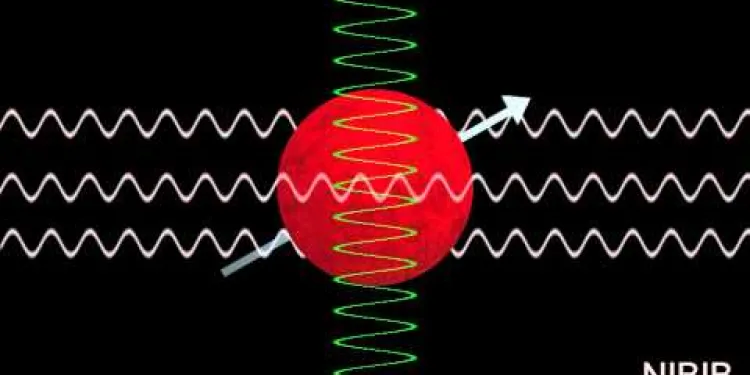
How Does an MRI Scan Work?
Relevance: 87%
-
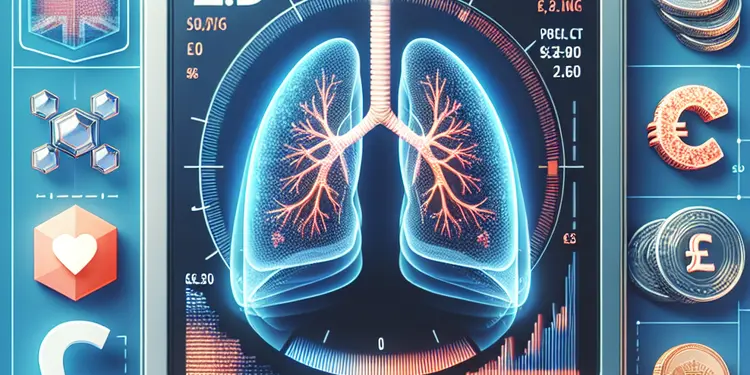
What is a low-dose CT scan for lung cancer?
Relevance: 87%
-
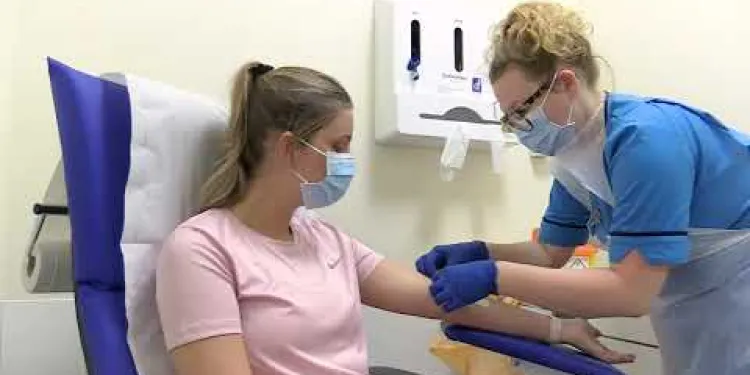
The FDG PET Scan: What to expect
Relevance: 87%
-
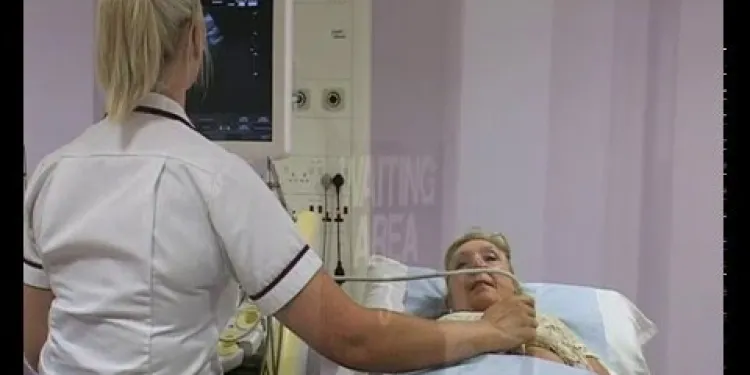
Having an Ultrasound scan at Manchester Royal Infirmary
Relevance: 83%
-
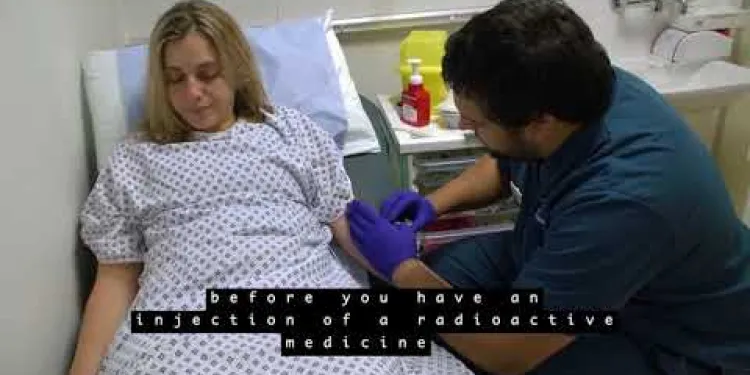
Your PET/CT scan at University College Hospital
Relevance: 83%
-

What is the purpose of a bone scan in prostate cancer treatment?
Relevance: 81%
-
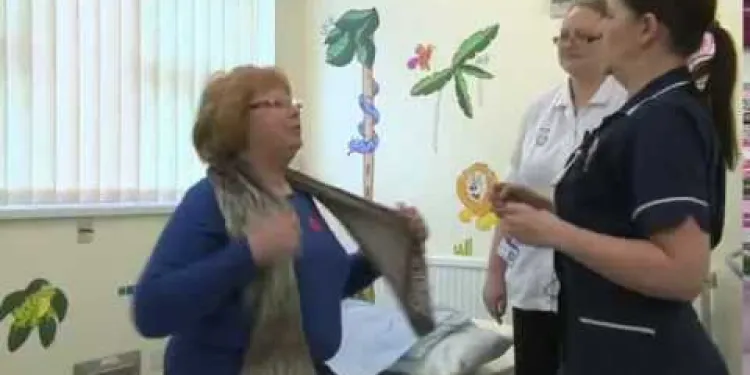
Patient video: What to expect when having a bone scan
Relevance: 78%
-
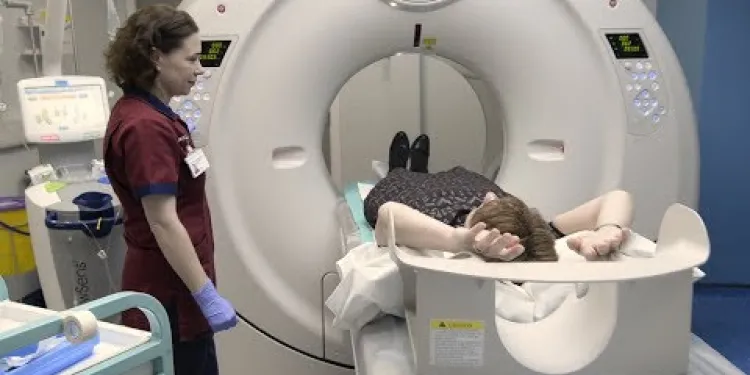
Having a CT Scan at Stoke Mandeville Hospital - Buckinghamshire Healthcare NHS Trust
Relevance: 76%
-
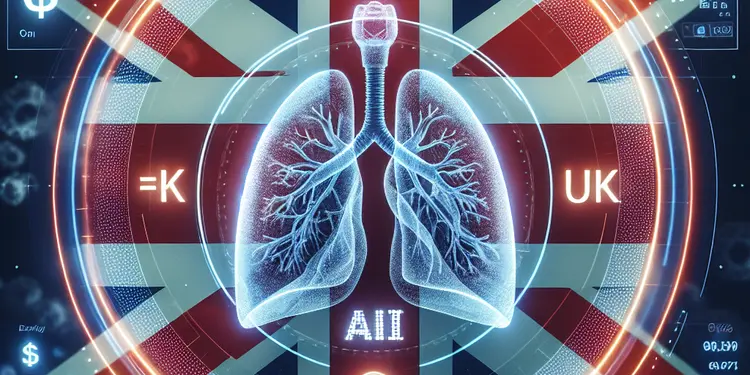
How do AI algorithms detect lung cancer in scans?
Relevance: 75%
-
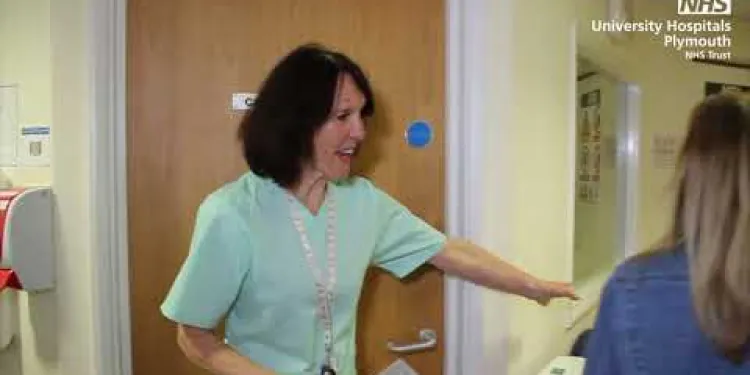
MRI Scanner walkthrough - what to expect at your appointment
Relevance: 42%
-
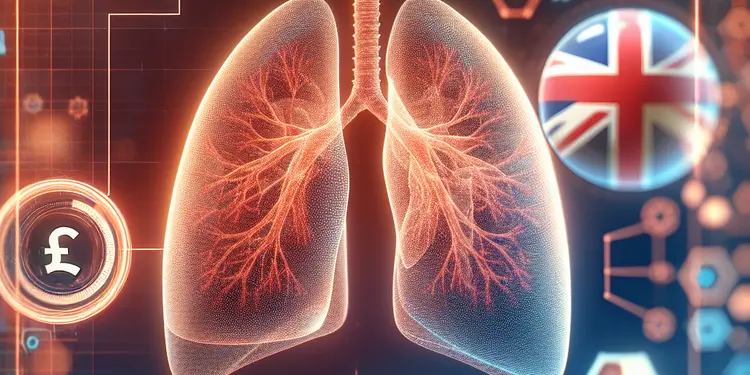
Which types of imaging data are analyzed by AI for lung cancer detection?
Relevance: 35%
-
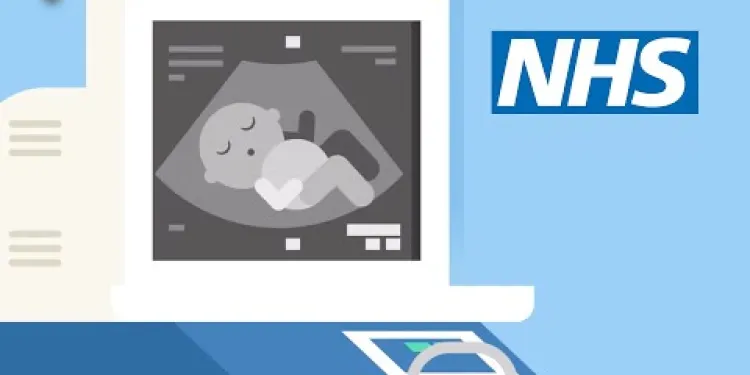
Screening tests for you and your baby | NHS
Relevance: 34%
-
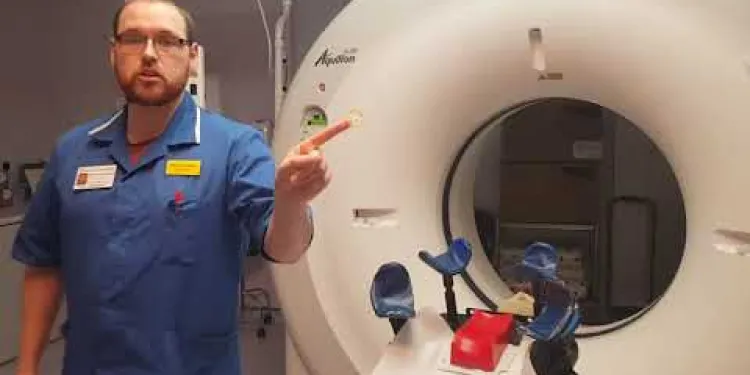
Radiotherapy CT scanner
Relevance: 32%
-
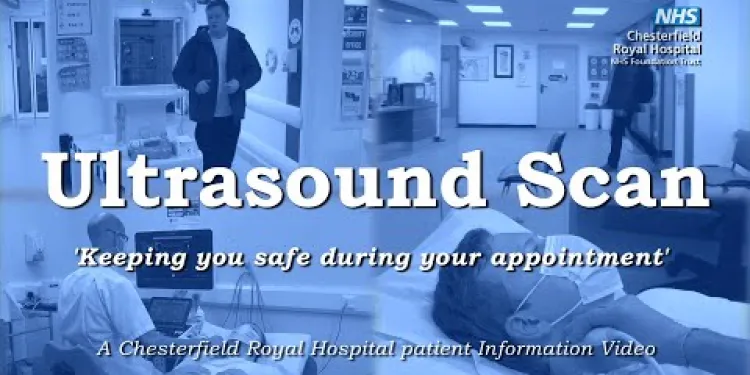
Your Ultrasound Appointment
Relevance: 32%
-

FFR-CT beat invasive conventional coronary angiography says a Cardiologist
Relevance: 31%
-
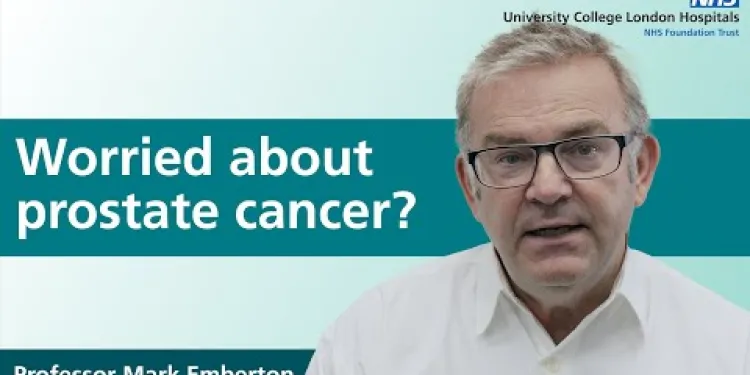
Prostate cancer diagnosis and tests
Relevance: 31%
-
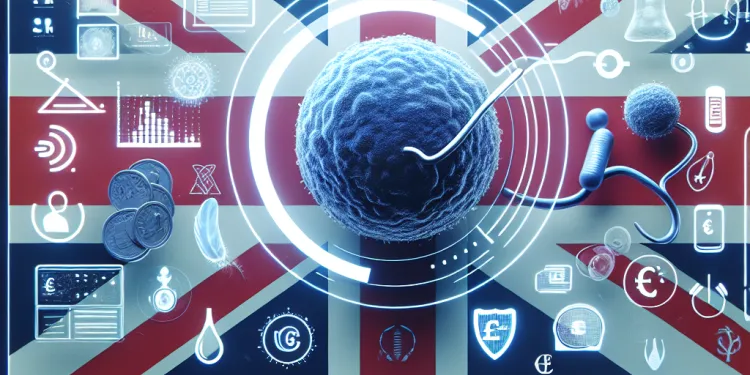
How is testicular cancer diagnosed?
Relevance: 30%
-

Survivor of an Abdominal Aortic Aneurysm rupture appeals for men to take up NHS Screening Programme.
Relevance: 30%
-
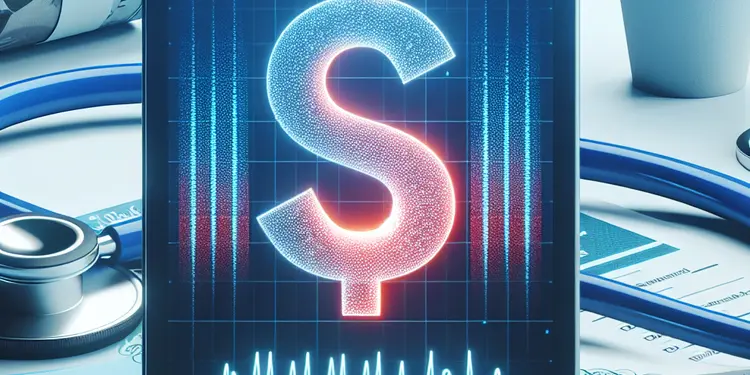
What medical tests are used to diagnose whiplash?
Relevance: 28%
-
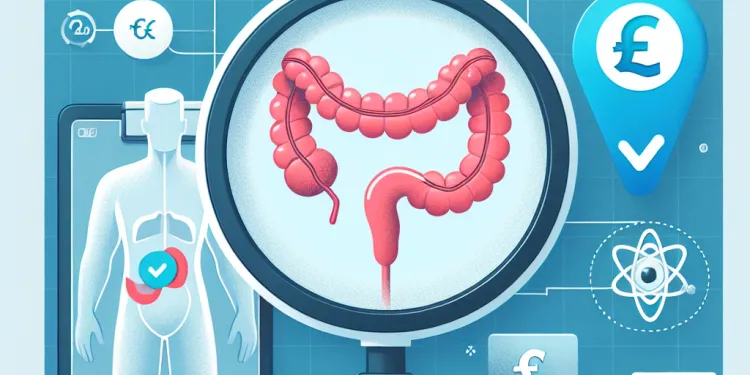
How is appendicitis diagnosed?
Relevance: 28%
-

How can I secure my email after a hack?
Relevance: 26%
-

What should I do if I suspect my email has been compromised through phishing?
Relevance: 26%
-
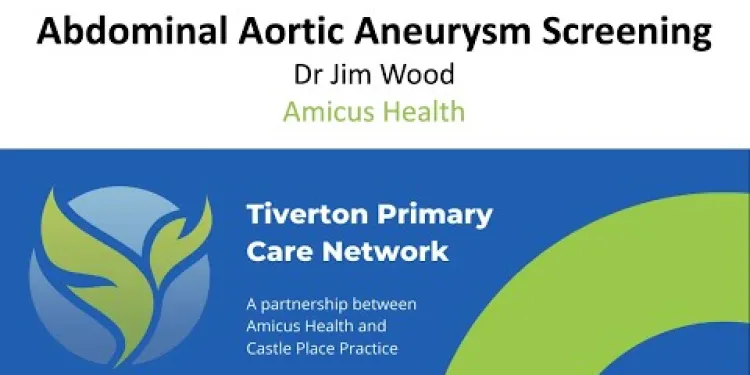
NHS Abdominal Aortic Aneurysm (AAA) Screening
Relevance: 25%
-
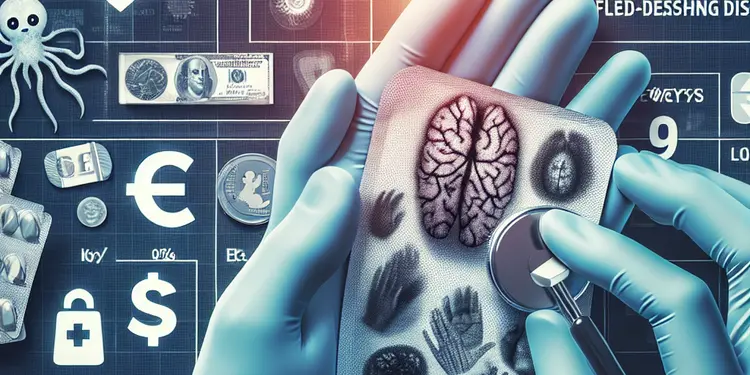
How is flesh-eating disease diagnosed?
Relevance: 24%
-
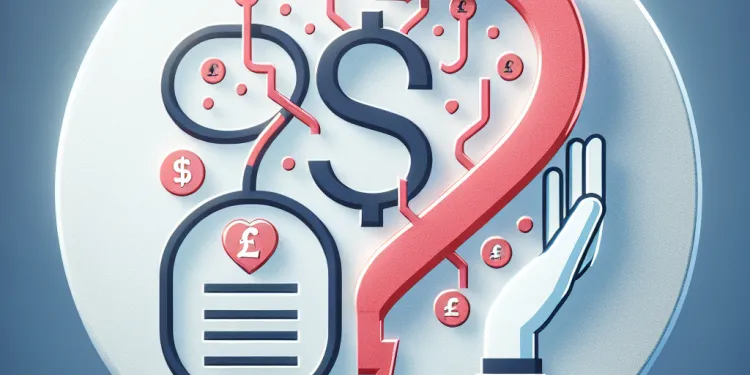
How is thrombosis diagnosed?
Relevance: 24%
-

Should I use antivirus software on my mobile phone?
Relevance: 23%
-
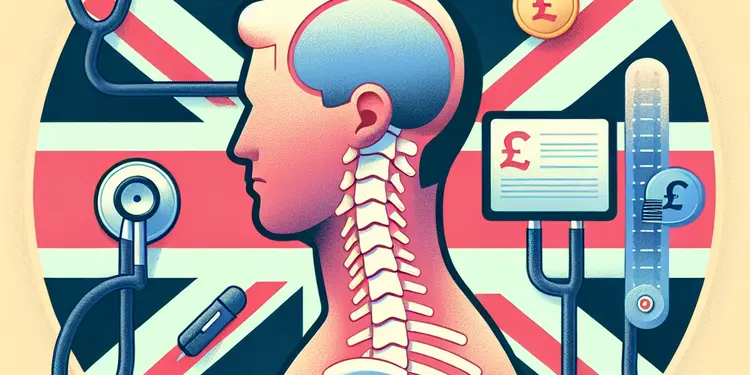
How is whiplash diagnosed?
Relevance: 23%
-
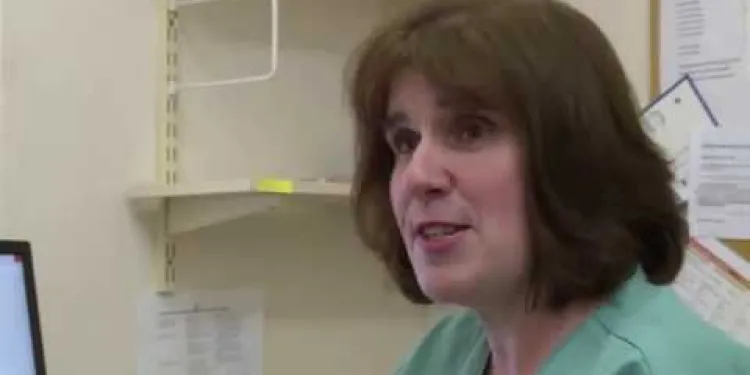
Your abdominal aortic aneurysm (AAA) screening appointment
Relevance: 23%
-

How are AI and Robots used to detect lung cancer?
Relevance: 23%
-
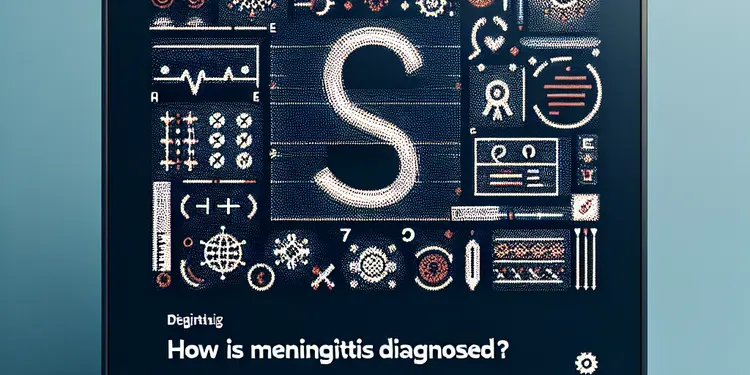
How is meningitis diagnosed?
Relevance: 22%
-
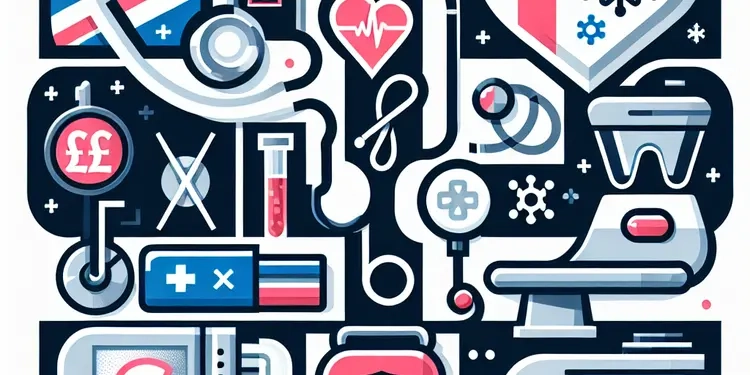
What kinds of cancer screening are available?
Relevance: 22%
Having a CT Scan in Tayside
What is a CT Scan?
A CT (Computed Tomography) scan is a sophisticated diagnostic imaging procedure that uses X-rays and computer technology to create detailed cross-sectional images of your body's internal structures. It helps doctors diagnose and monitor various health conditions. The scan is usually quick and non-invasive, making it a preferred method for many medical conditions.
Preparation for a CT Scan
Before having a CT scan in Tayside, you may be instructed to avoid eating or drinking for a few hours, especially if a contrast dye is being used. Wear comfortable clothing and remove any metal objects, such as jewellery, as they can interfere with the imaging process. It's essential to inform the radiologist if you have any underlying health conditions, allergies, or if you are pregnant.
The Procedure
During the CT scan, you will lie on a motorised table that slides into a large, doughnut-shaped machine. The machine will rotate around you, capturing multiple images from different angles. You may hear whirring or clicking noises as the machine operates, but the procedure is painless. You will need to stay as still as possible to ensure clear images. If contrast dye is used, you might feel a warm sensation or a metallic taste in your mouth.
After the Scan
Once the scan is complete, you can usually resume your normal activities. If contrast dye was used, drinking plenty of fluids will help flush it out of your system. The images captured will be analysed by a radiologist, and your doctor will discuss the results with you during a follow-up appointment. In Tayside, you can expect an efficient service with timely results, supporting your ongoing healthcare needs.
Benefits and Risks
CT scans offer numerous benefits, including their ability to provide detailed images quickly and effectively. However, they do involve exposure to a small amount of radiation. The risks are generally low compared to the benefits of accurate diagnosis and treatment. Your healthcare provider in Tayside will ensure that the scan is justified and that the benefits outweigh any potential risks.
Having a CT Scan in Tayside
What is a CT Scan?
A CT scan is a special kind of X-ray. It takes many pictures inside your body. This helps doctors see what's happening inside. It's quick and doesn't hurt.
Getting Ready for a CT Scan
Before the scan, you might need to not eat or drink for a few hours. Wear comfy clothes and take off things like jewellery. Tell the doctor if you're pregnant or allergic to anything.
What Happens During the Scan?
You'll lie on a table. The table moves into a big machine that looks like a doughnut. The machine takes pictures. It might make noises, but it won't hurt you. Stay very still for clear pictures. If you have a special dye, you might feel warm or taste metal.
After the Scan
When the scan is done, you can go back to normal activities. If you had dye, drink lots of water to help remove it. A specialist will look at the pictures and your doctor will talk to you about what they see.
Good and Bad of CT Scans
CT scans are good because they show details inside your body. But they use a little bit of radiation. Doctors will make sure the scan is safe for you and worth doing.
Frequently Asked Questions
What is a CT scan?
A CT scan, or computed tomography scan, is a medical imaging procedure that uses X-rays to create detailed images of the inside of your body.
Why do I need a CT scan?
A CT scan can help diagnose conditions, monitor the effectiveness of treatments, and guide certain medical procedures by providing detailed images of bones, organs, blood vessels, and tissues.
How do I prepare for a CT scan?
Preparation for a CT scan may include fasting for a few hours and removing any metal objects. Your healthcare provider will provide specific instructions based on the type of scan you are having.
Can I eat or drink before my CT scan?
It depends on the type of CT scan. For some scans, you may be instructed not to eat or drink for a few hours before the procedure. Always follow the specific guidelines provided by your healthcare provider.
Will I need to wear a hospital gown?
You may be asked to wear a hospital gown to avoid interference from clothing that contains metal, such as zippers or buttons.
What happens during the CT scan?
During the scan, you will lie on a table that slides into a large, doughnut-shaped scanner. You need to stay still, and the technician may ask you to hold your breath at times. The scanner takes multiple X-ray images from different angles.
How long does a CT scan take?
A CT scan typically takes between 10 to 30 minutes, depending on the type of scan and the area of the body being examined.
Will the CT scan be painful?
No, the CT scan itself is painless. However, you might feel some discomfort if you need to lie still for a longer period or if a contrast dye is used.
What is a contrast dye, and why is it used?
A contrast dye is a substance that enhances the visibility of specific areas or structures within the body during the scan. It can be administered orally, intravenously, or rectally, depending on the area being examined.
Are there any risks associated with a CT scan?
CT scans involve exposure to a small amount of radiation. While the risk is minimal, it is generally outweighed by the diagnostic benefits. Inform your doctor if you are pregnant or have any allergies to contrast dyes.
Can I drive myself home after the CT scan?
In most cases, yes. However, if you were given a sedative or if you experienced any side effects from the contrast dye, you might need someone to drive you home.
When will I receive the results of my CT scan?
Results are usually available within a few days. Your doctor will review the images and discuss the findings with you.
What should I do if I feel unwell after my CT scan?
If you experience any adverse reactions, such as difficulty breathing, rash, or swelling, seek medical attention immediately. Contact your healthcare provider if you have any concerns.
Can children have CT scans?
Yes, children can have CT scans, but the procedure is carefully considered and performed with special techniques to minimize radiation exposure.
How do I book a CT scan in Tayside?
You can book a CT scan in Tayside through your GP or specialist, who will refer you to a local hospital or diagnostic centre. They will provide you with the necessary information and appointment details.
What is a CT scan?
A CT scan is a special picture of the inside of your body. It helps doctors see your bones and organs.
Here's how it works:
- You lie down on a table.
- The table moves through a big machine.
- The machine takes pictures of your body.
The machine uses X-rays to take these pictures. It shows more details than a regular X-ray.
If you need help understanding, you can:
- Ask your doctor for more information.
- Bring a friend or family member with you.
- Watch videos about CT scans for kids.
A CT scan is a special kind of picture that doctors use to see inside your body. It uses X-ray beams to take these pictures and show all the details.
Why Do I Need a CT Scan?
A CT scan is a special kind of picture of the inside of your body. It helps doctors see what is happening inside you.
Doctors use a CT scan to check if everything is okay inside or to find out what might be wrong. This helps them decide the best way to make you feel better.
If you have worries about the scan, you can ask your doctor to explain more. You can also bring someone for support.
Some people find it helpful to take deep breaths to stay calm during the scan.
A CT scan is a special type of X-ray. It takes pictures inside your body. It helps doctors see your bones, organs, and blood vessels.
A CT scan can help doctors find out what is wrong. It can also show if your treatment is working. Sometimes, it helps doctors do surgeries or other medical work.
If you find reading difficult, you could use audiobooks. These read the text out loud to you. You can also try text readers on a computer or tablet. These tools can help make reading easier.
How can I get ready for a CT scan?
A CT scan is a special kind of picture that doctors use to see inside your body. Here’s how you can get ready:
1. Talk to your doctor: Ask your doctor anything you want to know about the CT scan. They can help you understand what will happen.
2. Listen to instructions: Your doctor may tell you not to eat or drink before the scan. This is important, so make sure you listen carefully.
3. Wear comfortable clothes: Put on clothes that are easy to take off and put on. Sometimes, you may need to wear a gown at the hospital.
4. Tell about allergies: If you are allergic to anything, tell the doctor. Some people are allergic to the dye used in CT scans.
5. Bring a friend: If you feel worried, it's okay to ask someone to come with you to the hospital.
Tools that can help:
- A friend or family member to support you.
- A favorite toy or book to help you relax.
Before a CT scan, you might need to stop eating for a few hours and take off any metal things you are wearing. Your doctor or nurse will tell you exactly what to do for your scan.
Can I eat or drink before my CT scan?
Do not eat or drink before your CT scan. Ask your doctor if you need to stop eating or drinking. If you don't understand, show them this paper.
The rules for eating and drinking depend on the kind of CT scan you will have. Sometimes, you might be told not to eat or drink for a few hours before the test. Always listen to what your doctor or nurse tells you to do.
To help understand:
- Ask your doctor or nurse if you are unsure.
- Use pictures or apps that explain the CT scan steps.
Do I have to wear a hospital gown?
The doctor might ask you to wear a hospital gown. This is because your clothes might have metal, like zippers or buttons, which can get in the way.
What happens during the CT scan?
A CT scan is a special kind of picture. It helps doctors see inside your body.
Here is what happens when you have a CT scan:
- Get Ready: You might have to take off some clothes and wear a hospital gown.
- Lie Down: You will lie down on a table. The table moves into a big machine shaped like a doughnut.
- Stay Still: You need to be very still while the machine takes pictures. The machine will make some noise.
- All Done: After a few minutes, the scan is finished, and you can get up.
If you feel nervous, you can ask a nurse or a doctor to help you. They can tell you what will happen and stay with you if you want.
When you have the scan, you will lie on a table. This table moves into a big, round machine that looks like a doughnut. You have to keep very still. Sometimes, the person in charge will ask you not to breathe for a little while. The machine takes lots of pictures of your body from different sides using X-rays.
How long does a CT scan take?
A CT scan is a special X-ray that helps doctors see inside your body. It doesn't take long. Usually, a CT scan takes about 10 to 30 minutes.
If you have trouble reading, you can ask someone to help you. You can also use tools to read out loud for you.
A CT scan usually takes about 10 to 30 minutes. How long it takes depends on the type of scan and the body part being checked.
Will the CT scan hurt?
The CT scan does not hurt. But you might feel uncomfortable if you have to lie still for a long time or if the doctors use a special dye.
What is a contrast dye, and why is it used?
A contrast dye is a special liquid. It helps doctors see inside your body when they take pictures, like X-rays.
The dye makes parts of your body stand out in the pictures. This helps doctors find problems or check how well you are doing.
If you find reading hard, you can ask someone to help read this to you. You can also look at pictures or videos about "contrast dye" to understand better.
A contrast dye is a special liquid. It helps doctors see inside the body better during a scan. You might swallow it, get it through a needle in your arm, or it might go in another way, depending on what part of your body needs checking.
Is a CT scan safe?
A CT scan is like a special picture-taking machine for inside your body. It is usually safe, but there are some risks.
Here is what to know:
- Small amount of radiation: A CT scan uses a tiny amount of energy called radiation. Doctors use the smallest safe amount.
- Feeling worried: Some people feel nervous about the scan. Talk to the doctor if you feel worried.
Helpful Tools:
- Ask a doctor or nurse to explain the scan. They can help you feel more comfortable.
- Bring a favorite toy or book to help you feel calm.
CT scans use a small amount of radiation. This means you get a little bit of exposure to radiation. The risk is very small, and the scan helps doctors find out what is wrong with you. This is the important part.
If you are pregnant, tell your doctor before the scan. Also, tell your doctor if you are allergic to the special dyes used in some scans.
It can help to talk with someone you trust if you are worried. You can also write down questions to ask your doctor.
Can I drive myself home after the CT scan?
After a CT scan, you might feel sleepy or dizzy. This can happen if you had a special medicine to help you relax.
If you feel okay and did not have medicine to relax, you can drive home.
If you feel sleepy or had medicine, it is safer to ask someone else to drive you.
You can use a notebook to write down how you feel or ask a friend to help you remember.
Most of the time, yes. But, if you took a medicine to make you sleepy or felt sick from the special dye, you might need someone to drive you home.
When will I get my CT scan results?
You will find out your CT scan results soon. The doctor will call you or ask you to come in to talk about what they found. It might take a few days.
If you are worried or have questions, you can ask a friend or family member to help you understand.
Using a calendar or setting a reminder on your phone can help you remember when to expect your results.
You usually get your results in a few days. Your doctor will look at the pictures and talk to you about what they find.
What if I feel sick after my CT scan?
If you feel sick after your scan, tell an adult you trust. You can also tell a doctor or nurse. They can help you feel better.
If you have any bad reactions, like trouble breathing, a rash, or swelling, get help from a doctor right away. Talk to your doctor if you are worried.
Can kids get a CT scan?
Yes, kids can have a CT scan. It is a picture of the inside of the body taken by a special machine.
CT scans help doctors see what is happening inside the body to help them understand what might be wrong.
It is important for parents to talk to the doctor to understand why the CT scan is needed.
If you have questions, ask the doctor or nurse. They can explain in simple words.
Tools to help: Pictures or videos that show how a CT scan works can be helpful.
Yes, kids can have CT scans. Doctors think about it carefully and use special ways to make sure kids get the least amount of radiation.
How can I book a CT scan in Tayside?
Do you need a CT scan in Tayside? Here is how to book one:
- Talk to your doctor. They will decide if you need a CT scan.
- If you need one, your doctor will help you book it.
- They might call the hospital or send a letter for you.
Some tools you can use:
- Ask someone you trust to go with you to your doctor's visit.
- Write down questions to ask your doctor.
- Use a calendar to keep track of your appointment.
You can get a CT scan in Tayside by talking to your doctor. Your doctor will help you by sending you to a local hospital or a center that does the scans. They will give you all the details about where and when you will have your scan.
Useful Links
This website offers general information and is not a substitute for professional advice.
Always seek guidance from qualified professionals.
If you have any medical concerns or need urgent help, contact a healthcare professional or emergency services immediately.
Some of this content was generated with AI assistance. We’ve done our best to keep it accurate, helpful, and human-friendly.
- Ergsy carfully checks the information in the videos we provide here.
- Videos shown by Youtube after a video has completed, have NOT been reviewed by ERGSY.
- To view, click the arrow in centre of video.
- Most of the videos you find here will have subtitles and/or closed captions available.
- You may need to turn these on, and choose your preferred language.
- Go to the video you'd like to watch.
- If closed captions (CC) are available, settings will be visible on the bottom right of the video player.
- To turn on Captions, click settings .
- To turn off Captions, click settings again.
More Items From Ergsy search
-

Going For a CT Scan
Relevance: 100%
-

Going for an MRI Scan
Relevance: 95%
-

So, you're having a CT scan...
Relevance: 95%
-

Having a CT Scan in Tayside
Relevance: 95%
-

I'm having an MRI scan
Relevance: 95%
-

Are AI body scans reliable?
Relevance: 95%
-

Having a CT scan in Hospital - What's it like having a CT scan at Bedford Hospital?
Relevance: 93%
-

What to expect of a DXA Scan
Relevance: 91%
-

What to expect of a DXA Scan
Relevance: 91%
-

How Does an MRI Scan Work?
Relevance: 87%
-

What is a low-dose CT scan for lung cancer?
Relevance: 87%
-

The FDG PET Scan: What to expect
Relevance: 87%
-

Having an Ultrasound scan at Manchester Royal Infirmary
Relevance: 83%
-

Your PET/CT scan at University College Hospital
Relevance: 83%
-

What is the purpose of a bone scan in prostate cancer treatment?
Relevance: 81%
-

Patient video: What to expect when having a bone scan
Relevance: 78%
-

Having a CT Scan at Stoke Mandeville Hospital - Buckinghamshire Healthcare NHS Trust
Relevance: 76%
-

How do AI algorithms detect lung cancer in scans?
Relevance: 75%
-

MRI Scanner walkthrough - what to expect at your appointment
Relevance: 42%
-

Which types of imaging data are analyzed by AI for lung cancer detection?
Relevance: 35%
-

Screening tests for you and your baby | NHS
Relevance: 34%
-

Radiotherapy CT scanner
Relevance: 32%
-

Your Ultrasound Appointment
Relevance: 32%
-

FFR-CT beat invasive conventional coronary angiography says a Cardiologist
Relevance: 31%
-

Prostate cancer diagnosis and tests
Relevance: 31%
-

How is testicular cancer diagnosed?
Relevance: 30%
-

Survivor of an Abdominal Aortic Aneurysm rupture appeals for men to take up NHS Screening Programme.
Relevance: 30%
-

What medical tests are used to diagnose whiplash?
Relevance: 28%
-

How is appendicitis diagnosed?
Relevance: 28%
-

How can I secure my email after a hack?
Relevance: 26%
-

What should I do if I suspect my email has been compromised through phishing?
Relevance: 26%
-

NHS Abdominal Aortic Aneurysm (AAA) Screening
Relevance: 25%
-

How is flesh-eating disease diagnosed?
Relevance: 24%
-

How is thrombosis diagnosed?
Relevance: 24%
-

Should I use antivirus software on my mobile phone?
Relevance: 23%
-

How is whiplash diagnosed?
Relevance: 23%
-

Your abdominal aortic aneurysm (AAA) screening appointment
Relevance: 23%
-

How are AI and Robots used to detect lung cancer?
Relevance: 23%
-

How is meningitis diagnosed?
Relevance: 22%
-

What kinds of cancer screening are available?
Relevance: 22%


